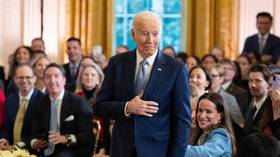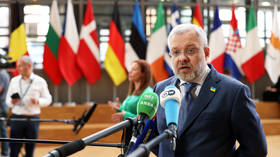Argentina passes one-time personal wealth levy dubbed ‘millionaires’ tax’ to cover Covid-19 damage

Argentina has approved an extraordinary levy on large personal wealth. The measure is meant to raise some $3.6 billion to fund recovery after the Covid-19 pandemic. Critics say it’s not an option for the stagnant economy.
The so-called “millionaires’ tax” was approved in the Senate late on Friday in a 42 to 26 vote. The measure targets Argentinian citizens with declared personal wealth of over 200 million pesos ($2.5 million). It will apply a progressive tax rate of at least 2 percent on their total fortunes, including assets they may hold outside the country.
The tax was earlier passed by the lower chamber of the Argentine parliament, with 133 votes for it and 115 against.
Proponents say almost 12,000 people qualify to pay the levy, with the 380 richest taxpayers expected to cover over half of the total sum.
The government hopes to raise as much as $3.6 billion, which is to be spent on medical supplies, support of small and medium-sized businesses, social projects, student scholarships and exploration of natural gas.
The tax was floated by the leftist government of Alberto Fernandez and his Frente de Todos (Everybody’s Front) coalition and was described as an opportunity for rich individuals to show “solidarity and extraordinary contribution” to the nation. The spending will boost the ailing national economy, they argued.
Also on rt.com Global food prices hit six-year high as Covid-19 pandemic turns into major driver of food inequalityArgentina went into recession in 2018, which was a major factor in why Fernandez last year managed to unseat his predecessor, Mauricio Macri, in a general election. The Covid-19 pandemic, which has caused almost 40,000 deaths in Argentina, further aggravated its economic woes.
Critics from Macri’s Juntos por el Cambio (Together for Change) coalition said the move was “anti-investment, confiscatory and discriminatory”, and voiced concern that instead of being a one-time measure it would persist in some form.
Think your friends would be interested? Share this story!














